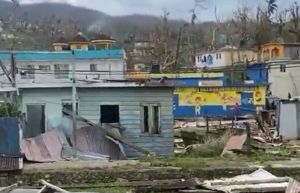The former secretary of the Nobel Peace Prize committee said he regrets giving President Obama the prestigious award in 2009 because it didn't produce the results the panel had hoped for.
Writing in his memoir published Thursday, Geir Lundestad said the committee decided to award Obama with the prize just after his election due to the president's ambitious nuclear disarmament goals laid out on the campaign trail. The committee had hoped it would strengthen Obama, but he said the committee's expectations were not fulfilled.
"[We] thought it would strengthen Obama and it didn't have this effect," he told the Associated Press in an interview. "Even many of Obama's supporters believed that the prize was a mistake. In that sense the committee didn't achieve what it had hoped for."
Obama made world peace and nuclear disarmament a central tenant of his presidential campaign, saying in 2008, "It's time to send a clear message to the world: America seeks a world with no nuclear weapons."
"As long as nuclear weapons exist, we'll retain a strong deterrent. But we'll make the goal of eliminating all nuclear weapons a central element in our nuclear policy," then-Senator Obama added, according to CNN.
After becoming president, Obama went on to bomb seven countries - more than former President George W. Bush - and escalate a controversial drone program which has been responsible for the death of thousands of innocent Middle Eastern civilians as well as the extra-judicial deaths of multiple American citizens.
In 2014, Obama began an effort to revamp America's nuclear arsenal, allocating over $1 trillion dollars for nuclear upgrades over the next ten years, as HNGN previously reported.
Lundestad, who served on the committee for 25 years, also revealed that Obama was shocked to hear he had been given the award and even considered skipping the official reception ceremony in Norway's capital, Oslo, according to the BBC.
Obama's staff looked into whether other winners had ever skipping the ceremony but discovered that it had only happened on rare occasions, such as when a government prevented a dissident from attending.
"In the White House they quickly realized that they needed to travel to Oslo," Lundestad wrote.
© 2025 HNGN, All rights reserved. Do not reproduce without permission.








